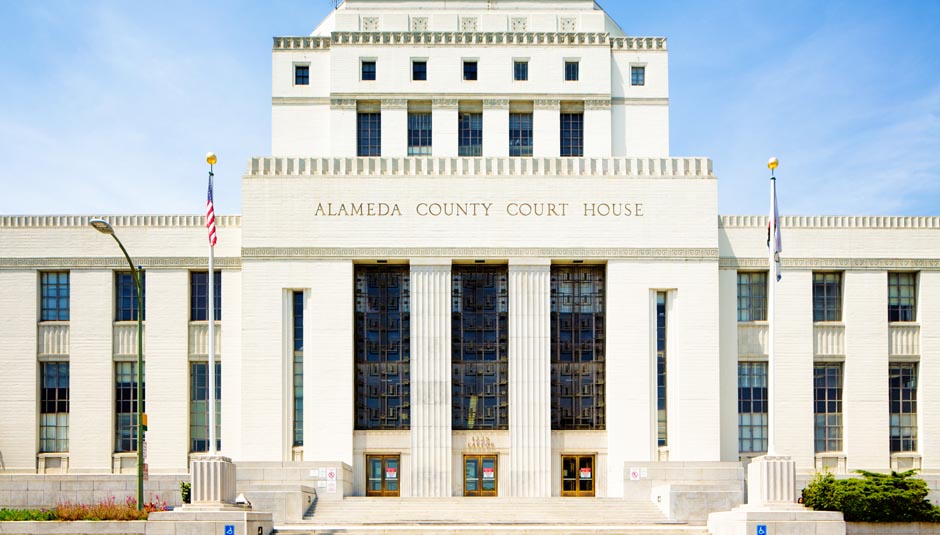Of all the concepts I explain at free initial consultations, something that comes up often is the fact that the individual, shortly after the arrest, is typically not yet charged with any crime. Most people assume it’s the police, or the victim, who file the charges, and that this happens at the time of arrest, booking at the jail, or sometime between the arrest and the first court date (which is called “Arraignment”).
Ultimately though, it is the prosecutors at the County District Attorney’s Office who decide whether or not to file charges (not the victim, or the police), and often this does not happen by the time of your scheduled Arraignment.
Additionally, many innocent people cannot fathom how they can possibly be charged with a crime when, in their eyes, there cannot exist any evidence of their guilt because they are not guilty.
However, the second thing to understand about criminal charges is that even if the prosecutor’s office has insufficient evidence to prove you are guilty, they can still file charges because the court does not inspect or review any evidence at the time of filing charges, or make any determinations that there is insufficient evidence to file charges.
Why People Think Police and Victims File Charges?
It’s understandable why most people think the police file criminal charges. After all, police typically say, “You are under arrest for [blank],” not, “You are under arrest for suspicion of [blank].” Police and jail staff also issue Promises to Appear in court and Citations which say “Charges,” rather than “Expected Charges” or “Recommended Charges” (which would be a more accurate statement). Inmate Locator websites, which friends and family use to find and bail loved ones from jail, also say “Charges,” even when no charges have yet been filed.
Additionally, when police talk to victims, they often ask them whether or not they want to file charges, but a more accurate statement would be to ask the victim if they wish for the District Attorney’s Office to file charges against the accused individual.
Filing Criminal Charges in California

In California, when a County District Attorney’s Office (such as the Alameda County District Attorney’s Office) receives information that a person is believed to have committed a crime, usually in the form of a police report or citation, a Deputy District Attorney (often called the “Charging Deputy”) reads the police report and decides whether or not to:
- File a criminal charge or charges,
- Not file any charges, or
- Send the case back to the police for further investigation.
The District Attorney’s Office has complete discretion to file, or not file, criminal charges, and can even file different charges than the police recommend in the report. The decision to file charges or not is made by the Charging Deputy based on their opinion of whether or not they believe they could successfully prove the person guilty at trial. The victim’s input may matter to the prosecutor’s office, but ultimately the prosecutor can file charges even if the victim doesn’t want that, and can similarly refuse to file charges even when the victim is adamant they want charges to be filed.
In the time leading up to the scheduled Arraignment, ideally the prosecutor’s office will review the report, decide whether or not to file charges, and file them if they so desire. However, most often, the prosecutor’s office does not even review the police report in a case until sometime after the court date given to the arrested individual, and files charges sometime thereafter.
California Statute of Limitations
This is because the prosecutor’s office has until the Statute of Limitations expires to file charges, and is not prohibited from filing charges just because they didn’t do so by your Promise to Appear/Arraignment date.
The Statute of Limitations typically runs from the date the crime is believed to have been committed. How long that Statute of Limitations period is depends on the crime. For example, all misdemeanors in California have a one-year Statute of Limitations. Felonies have a 3-year, 7-year, or even longer Statute of Limitations depending on the crime alleged. Some felonies even have no Statute of Limitations.
It is not uncommon to attend your Promise to Appear or Citation date and discover the District Attorney’s Office has not yet filed any charges. This is not an indication that charges won’t be filed in the future, it usually just means the prosecutor’s office has not read your police report, due to their own backlog.
What’s Required to File Charges
Once the Charging Deputy has decided to file charges, and which types of charges to file, they will write a document called a “Complaint” and file that document with the Clerk at the Criminal Division of the County Superior Court. The Complaint does not need to be more specific than to state:
“We believe [name] committed the crime of violating [law alleged broken], in the County of [county], on [date of alleged offense].”
The police reports and other evidence are not attached to the Complaint, and no Judge reviews the Complaint allegations or can potentially tell the prosecutor, “There isn’t enough evidence to charge that,” because no evidence is presented at this stage of the process and no judge is involved with the case yet.
Nevertheless, once a person is charged, they may suffer the burden of having to come to court, miss work, hire a lawyer, or even have a trial, all without and before any evidence is presented to a judge for any independent review.
If this case is truly without sufficient evidence, but is only a misdemeanor, the person may have to actually have a Trial just to get anyone (a judge or jury) to look at the evidence and make such a determination. In a felony case however, there is a mandatory hearing that takes place (eventually, not at the first court date) where the judge can dismiss the case for insufficient evidence.
Beware of Lawyer’s Who’s Fee Does Not Depend on Whether or Not Charges are Filed
Many people contact a lawyer before they go to their first court date, and many people hire a lawyer before their first court date. It is not unwise to do so. After all, hiring a lawyer prior to court typically spares you the inconvenience of having to be there yourself (unless it’s a Domestic Violence case or felony, in which case you need to be there). And of course, having a lawyer at your first court will help ensure you achieve the best results possible at the first court date (such as a low or $0 bail, favorable pre-trial release conditions, etc…).
However, not all arrests result in charges being filed. For instance, the prosecutor may review the case and decline to file charges on the basis of insufficient evidence. A more specific example, if you were arrested for DUI, and chose a blood test, your blood may test to be less than the illegal amount of alcohol (0.08), in which case the prosecutor will not likely file DUI charges (unless there were drugs too).
It is therefore important, if you are not certain that charges have been filed yet, to beware of lawyers whose fee is the same regardless of whether or not charges are filed. Here at RLS Criminal Defense, I will not charge you more than the first $1,000 of your retainer fee if your case ultimately is never charged. I will not collect more than that $1,000 until it is charged. I do allow that $1,000 to be paid in monthly installments without interest. I will conduct the necessary interview to understand your case, be prepared for and appear for your Arraignment, and if charges are not filed by the time of your Arraignment, I will monitor the case through the District Attorney’s office weekly until they either confirm charges are filed, won’t be filed, or the Statute of Limitations expires.
If you have not yet been to court and been handed a copy of your Complaint, by all means hire an attorney, but don’t hire one whose fee will be the same whether you do, or don’t, actually get charged!

